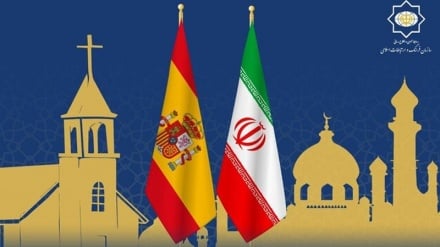Be neither a scandal-monger nor a ridiculer/a Qur'anic order to improve racial coexistence
Pars Today- Iranian globally renowned poet, Mowlavi (also known as Mowlana), explaining a statement of the Prophet of Islam, says, "Some people openly speak of the defects of others while keep blind towards their own defects."
God says in verse 11 of chapter Hujurat of the holy Qur'an, "O you who have faith! Let not any people ridicule other people: it may be that they are better than they are, nor let women [ridicule] women: it may be that they are better than they are. And do not defame one another, nor insult one another by [calling] nicknames. How evil are profane names after faith! And whoever is not penitent – such are the wrongdoers."
One of the evil characteristics of human beings and human communities is that people are accustomed to ridicule each other, either a person ridicules another person or a race ridicules another one. These groups are usually negligent of their defects and only see those of the others. So, consciously or unconsciously, they embark on exposing of the defects of others to conceal their own; or they say something that, basically, is not a defect and only a difference in another person or ethnicity. But, they consider it as an insult. Therefore, with the aim of training human beings and helping their coexistence, God orders them to never mock at or humiliate each other, particularly that, the other(s) might be better.
Ridiculing is worse than any insult because, insulting is to say something unpleasant to someone, while ridiculing is to make a plaything of one's whole being.
God's other order is to avoid scandal-mongering and fault-finding. The Prophet of Islam says, "Happy is the one whose faults prevent him from the faults of people."
Iranian great poet and mystic, Mowlavi explains this statement of the Prophet, saying, "Some persons speak of the defects of people, but are blind towards their own defects."
Another Iranian poet, Nezami Ganjavi, also recommends us to seek beauty and good things as much as we can so that we may obtain beauty and art.
God continues in this verse that we should avoid calling each other with profane names because it is very bad to call someone with impure names after he/she has been named with the pure name of servitude of God.
In the end of the verse, God points to His mercy and commands the faithful to refrain from such deeds. Then He calls on them to repent as they have realized the evil of their deeds, otherwise, they will be among the wrongdoers. And wrongdoing is the sin that will deprive one of faith if he/she persists in it. Then it could be said that wrongdoing is equal to unfaith. "And the faithless- they are the wrongdoers." (Chapter Al-Baqara, verse 254)
Today, most of the humorous words and jokes commonly said by people, contain mockery and fault-finding of other ethnicities and nations; and they have more or less been forbidden by God. The general religious rule on these jokes is that they should not upset or be offensive to any person. Particularly, attributing unpleasant characteristics to various ethnicities is not good at all. And if some jokes cause apparent laughter or happiness, most of them cause offense, harassment, and sometimes spite and enmity.
Finally, we should know that if God reprimands an ethnicity or individual because of a defect, He wants to keep them aloof from that defect and bad habit, rather than ridiculing them or finding fault with them.
Source: Elahi Qomshei, Hossein, 2011. 365 days in dialogue with the Qur'an
Key phrases: What kind of a book is the Qur'an? who is the Prophet of Islam? who is Mowlavi? why shouldn't the others be ridiculed? why shouldn't the others be humiliated? social orders of the Qur'an
RM/UR



